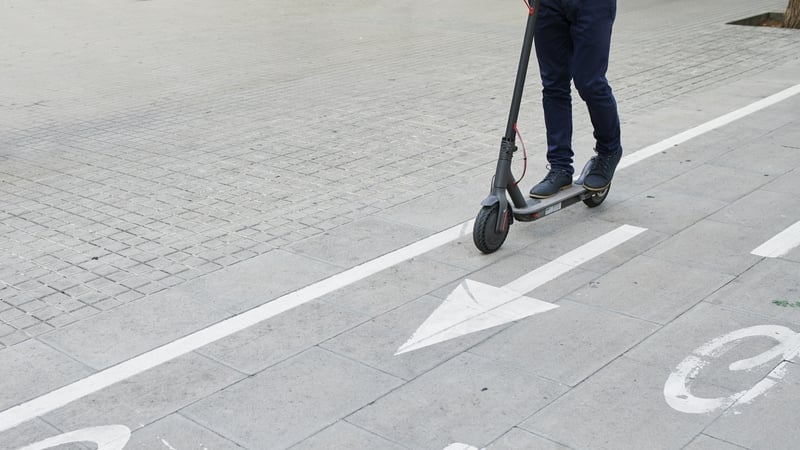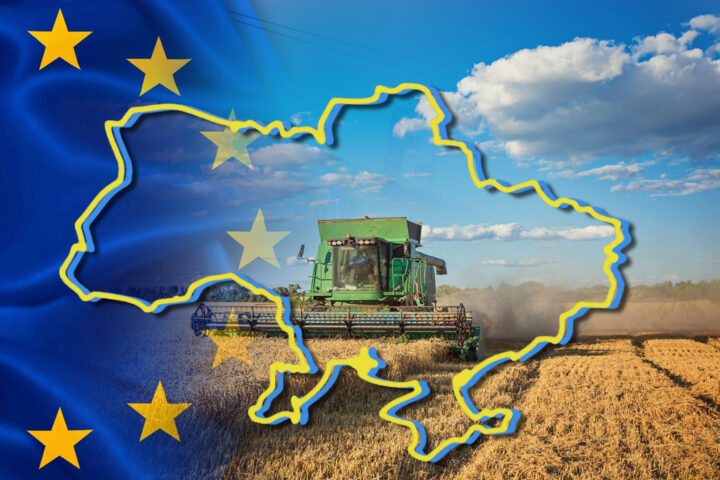The presence of alcohol and drugs in patients involved in falls and collisions from e-scooters has doubled while use of helmets has decreased since the use of e-scooters on public roads was legalised last year, according to the findings of new research.
Doctors at St James’s Hospital found there has been no significant reduction in injury incidence, severity or adoption of protective measures such as helmet use and avoidance of intoxicants since legislative reform allowing the use of e-scooters on public roads was introduced in May 2024.
Instead, overall injury rates are continuing to increase due to the growing popularity of e-scooters, although fewer related injuries have been recorded among young people under 16 years.
The research by doctors at the National Maxillofacial Unit at St James’s Hospital also revealed that alcohol or some other substance had been consumed by the victims of an e-scooter related injury in 36% of cases since the passing of the legislation compared to 18% beforehand.
As a result of the study’s findings, they recommended that mandatory safety training or educational modules should be implemented as a prerequisite for use of e-scooters.
The study analysed patients presenting with e-scooter related facial injuries for two ten months periods before and after the passing of the legislation which classified e-scooters as “personal powered transporters”.
The law requires users to be over 16 years and to adhere to a maximum speed limit of 20km/h, although the use of helmets is not mandatory.
The study, which is published in the Irish Journal of Medical Science, highlighted how e-scooter-related injuries rose from 1.7% of all facial trauma presentations at St James’s Hospital to 2.5% since the use of e-scooters on public roads was legalised.
Rates of admission to hospital of such patients have also increased from 31% to 36% with an associated rise in the number of related surgical procedures.
The use of helmets by patients with e-scooter-related facial injuries declined from 23% to 18% over the same period.
Prior to the legislation being introduced, most injuries occurred between 4pm and 7pm.
Since the passing of the legislation, however, more than half of all cases took place between 7pm and 6am, of which more than half reported having consumed alcohol at the time.
In contrast, the lowest frequency of injuries occurred during the busy commuter period of 6am-9am.
“Alcohol use and poor helmet compliance in the later hours of injury incidence was a prevalent finding in both cohorts,” the study noted.
The researchers said such findings highlighted the critical need to tailor public health and safety interventions to periods of elevated risk.
“Infrastructure improvements, such as enhanced street lighting, and targeted public awareness campaigns focused on evening and night-time riders may offer substantial benefits in reducing both the frequency and severity of e-scooter-related injuries,” they added.
The analysis showed 22 patients had presented with 26 maxillofacial injuries between May 2023 and February 2024, while 28 patients with 36 maxillofacial injuries were recorded between May 2024 and February 2025.
Many of the same patients had also suffered injuries to other parts of their bodies.
The overwhelming majority of patients over both periods were drivers of e-scooters with only three of 50 cases involving pedestrians.
The analysis also revealed that the proportion of patients with e-scooter-related injuries who were male increased from 59% to 71%.
Non-Irish nationals account for almost half of all patients with such injuries with their share of total cases increasing from 41% to 46% over the two periods analysed.
There was also a significant increase in the proportion of patients who live in Dublin which increased from 45% to 75%.
The study said such figures suggested an increased uptake of e-scooter use within the capital.
The average age of patients remained stable at approximately 33 years.
Only one person under 16 years sought treatment for an e-scooter-related facial injury after the legislation was introduced compared to three in the period before they were legalised for use on public roads.
However, the study found an increase in injuries among both the 16-34 and 35-44 age groups.
Nobody over 60 years was reported as suffering from an e-scooter-related facial injury during either period.
The study said there had been a shift in frequency and severity in facial fracture patterns since implementation of the new legislation.
The most common facial fracture experienced by e-scooter users is to the cheekbone followed by the jaw.
The authors of the study said their findings suggested that recent legislative changes had “some modest impact” on e-scooter-related facial injuries due to fewer injuries among younger teenagers, while a decrease in head trauma incidents might be attributable to the introduction of a statutory speed limit.
In addition, they claimed the increasing rate of facial injuries among e-scooter users was contributing to a rising burden on healthcare services.
They also observed that a growth in the number of injuries of e-scooter users from Dublin coupled with the increased prevalence of alcohol consumption and night-time riding “underscores a potential growing risk profile.”
The study recommended that ongoing surveillance and policy evaluation were essential for having effective strategies to prevent injuries from e-scooters.















